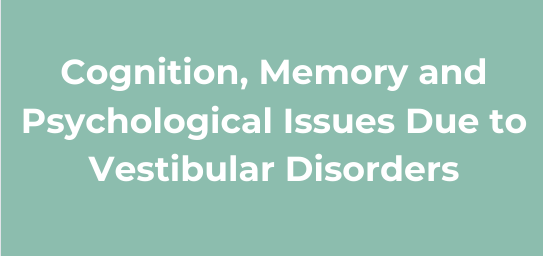Vertigo can occur as a symptom following
traumatic brain injury (TBI). It is characterised by a
sensation of spinning often accompanied by
nausea, vomiting, and difficulty with balance .
Vertigo can have various causes in the context of
TBI, including damage to the inner ear structures,
disruption of vestibular pathways in the brain, or
coexisting conditions such as migraine or
cervicogenic dysfunction. BPPV, hypofunction,
vestibular migraine and PPPD are common in TBI
